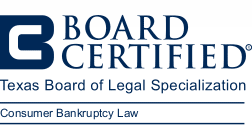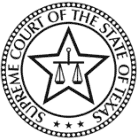Recent Blog Posts
When Do Trustees File Lawsuits to Recover Assets in Consumer Bankruptcy?
 Bankruptcy trustees can file lawsuits to recover assets when they believe you transferred property or made payments before filing bankruptcy in ways that were unfair to your creditors. These lawsuits are called adversary proceedings, and they can complicate your bankruptcy case significantly. The trustee's job is to find assets that can be sold to pay your creditors, and they have legal tools to go after property you no longer own if you gave it away or sold it for less than it was worth.
Bankruptcy trustees can file lawsuits to recover assets when they believe you transferred property or made payments before filing bankruptcy in ways that were unfair to your creditors. These lawsuits are called adversary proceedings, and they can complicate your bankruptcy case significantly. The trustee's job is to find assets that can be sold to pay your creditors, and they have legal tools to go after property you no longer own if you gave it away or sold it for less than it was worth.
If you are curious about whether filing for bankruptcy in 2026 would help you, call us at 713-526-5220. Our Conroe Board-Certified bankruptcy attorney has helped thousands of people get debt relief and can guide you through the process. We offer free consultations to review your situation and help you avoid common mistakes that trigger trustee lawsuits.
Will My Creditors Dispute My Bankruptcy Claim?
 Many people worry that their creditors will fight their bankruptcy filing. The good news is that most creditors do not dispute bankruptcy cases. Creditors understand that bankruptcy is a legal right, and in most situations, they accept the outcome without objection. However, certain circumstances can lead creditors to challenge your case. Understanding when and why this happens can help you prepare and protect your fresh start.
Many people worry that their creditors will fight their bankruptcy filing. The good news is that most creditors do not dispute bankruptcy cases. Creditors understand that bankruptcy is a legal right, and in most situations, they accept the outcome without objection. However, certain circumstances can lead creditors to challenge your case. Understanding when and why this happens can help you prepare and protect your fresh start.
If you are considering filing for bankruptcy in 2026, speaking with a Houston bankruptcy attorney who is Board-Certified in Consumer Bankruptcy Law by the Texas Board of Legal Specialization can give you confidence in your case. Our firm offers free consultations to help you understand your options and avoid common problems that trigger creditor disputes.
When Can Creditors Sue Debtors in Bankruptcy?
Once you file for bankruptcy, the automatic stay goes into effect immediately. This is a powerful protection under 11 U.S.C. Section 362 that stops all collection activity, including:
Can Chapter 13 Bankruptcy Stop Foreclosure in Texas?
 Facing foreclosure on your home in 2026 is one of the most stressful situations any family can experience. The thought of losing the place where you raised your children, celebrated holidays, and built memories is terrifying and angering. If you have fallen behind on mortgage payments, you might wonder if there is any way to stop the foreclosure process and keep your home.
Facing foreclosure on your home in 2026 is one of the most stressful situations any family can experience. The thought of losing the place where you raised your children, celebrated holidays, and built memories is terrifying and angering. If you have fallen behind on mortgage payments, you might wonder if there is any way to stop the foreclosure process and keep your home.
Chapter 13 bankruptcy can stop foreclosure in Texas, often within hours of filing. This powerful legal tool creates an immediate halt to all collection activities, including foreclosure sales. For good people going through hard times, Chapter 13 offers a path to catch up on missed mortgage payments while keeping your home.
Understanding how the foreclosure process works and how bankruptcy can stop it will help you make better decisions about protecting your property. And our Board-Certified Waller County, Texas bankruptcy and foreclosure attorney is here to help.
Car Repossession in Texas: What You Need to Know
 If you are behind on car payments, you may be worried about your car getting repossessed. After all, in Texas, a car is often a necessity. Things are simply too far away to walk, and public transit isn’t much help. When a car is repossessed, people’s whole lives can fall apart.
If you are behind on car payments, you may be worried about your car getting repossessed. After all, in Texas, a car is often a necessity. Things are simply too far away to walk, and public transit isn’t much help. When a car is repossessed, people’s whole lives can fall apart.
A report from CBS News just a couple of months ago said that an estimated 3 million people had their car repossessed last year. Many of those repossessions could have been stopped with a good lawyer.
If you are worried about losing your car in 2026, our Texas bankruptcy and repossession defense attorney can help. Even if your car has already been repossessed, it may not be too late to do something. Call us today at 713-526-5220.
Before Filing Bankruptcy, Should You Try a Loan Modification?
 The state of Texas moves quickly on foreclosures, leaving homeowners much less time to react than they might expect. If you are behind on your mortgage payments and it feels like bankruptcy could be the only path to saving your home, it is worth your time to first consider a loan modification.
The state of Texas moves quickly on foreclosures, leaving homeowners much less time to react than they might expect. If you are behind on your mortgage payments and it feels like bankruptcy could be the only path to saving your home, it is worth your time to first consider a loan modification.
To be clear, not every homeowner can benefit from a loan modification, and if you have a significant amount of non-secured debt in addition to your mortgage, bankruptcy could be the better option. A Fort Bend County, TX loan modification attorney can help you determine what is best for your specific circumstances.
What Is a Mortgage Loan Modification?
A mortgage loan modification is a permanent change to the terms of the existing mortgage. Loan modifications are meant to help homeowners avoid foreclosure by making payments more affordable. This can be done in a number of ways, including:
Sole Bankruptcy: Why Your Spouse’s Debts Still Matter in TX
 Texas couples may be shocked to learn that a bankruptcy filing by only one spouse can still affect the other spouse. Because Texas is a community property state (Chapter 3, Subchapter A, Section 3.002), the bankruptcy estate includes everything acquired during the marriage – even if only one spouse files.
Texas couples may be shocked to learn that a bankruptcy filing by only one spouse can still affect the other spouse. Because Texas is a community property state (Chapter 3, Subchapter A, Section 3.002), the bankruptcy estate includes everything acquired during the marriage – even if only one spouse files.
What often happens is that the non-filing spouse’s creditors surface during bankruptcy. Perhaps the non-filing spouse has old debts, medical bills, or credit card accounts that the filing spouse did not consider. What this means in practical terms is that the non-filing spouse’s creditors may file claims or challenge exemptions even though that spouse is not personally filing for bankruptcy.
If only one spouse is filing for bankruptcy, community debts owed solely by the non-filing spouse may be eliminated, but this protection applies only when the bankruptcy is planned correctly from the start. Speaking with an experienced Galveston County, TX consumer bankruptcy lawyer can help you understand your rights, avoid costly surprises, and protect both spouses.
Bankruptcy Challenges Unique to Texas Veterans
 Texas has the highest number of veterans in the United States, with approximately 1.4 to 1.5 million living in the state. The percentage of veterans relative to the state’s population is higher than the national average, although specific percentages are not readily available.
Texas has the highest number of veterans in the United States, with approximately 1.4 to 1.5 million living in the state. The percentage of veterans relative to the state’s population is higher than the national average, although specific percentages are not readily available.
In many cases, a Texas veteran can arrive in bankruptcy court with a financial picture that looks very different from that of civilian debtors. From complex military pension rules, disability income that is partially protected, and VA overpayment recoupments that behave like government debts, Texas veterans face legal challenges that most families never encounter.
Understanding these veteran-specific issues can affect exemption planning, means-test outcomes, and how aggressively the trustee is allowed to pursue certain assets. If you are a veteran with questions about bankruptcy, a highly experienced Harris County, TX Chapter 13 bankruptcy lawyer can answer your questions and guide you through the process.
What Happens to a Texas Reverse Mortgage in Bankruptcy?
 Reverse mortgages are becoming increasingly common among older Texans seeking to tap into their home equity without incurring a monthly debt obligation. Yet when financial trouble hits, the question arises: what happens to a reverse mortgage in a bankruptcy filing? Although Texas has some of the strongest bankruptcy homestead exemptions in the country, it is essential to know how reverse mortgages are handled during Chapter 7 or Chapter 13 bankruptcy.
Reverse mortgages are becoming increasingly common among older Texans seeking to tap into their home equity without incurring a monthly debt obligation. Yet when financial trouble hits, the question arises: what happens to a reverse mortgage in a bankruptcy filing? Although Texas has some of the strongest bankruptcy homestead exemptions in the country, it is essential to know how reverse mortgages are handled during Chapter 7 or Chapter 13 bankruptcy.
This is especially true when the homeowner is behind on taxes, insurance, or occupancy requirements. Seniors and their heirs must understand how bankruptcy impacts a reverse mortgage. A Brazoria County, TX bankruptcy lawyer can help you determine how bankruptcy will affect your reverse mortgage and guide you through the process.
How Do Texas Reverse Mortgages Work?
Reverse mortgages are available to borrowers who are 62 years or older and occupy the home as their primary residence. There is no monthly mortgage payment required; the loan balance grows over time, and the loan becomes due when the last surviving borrower dies, sells the home, or permanently moves out. To keep the reverse mortgage in good standing, borrowers must keep property taxes and homeowner’s insurance current and maintain the house to keep its value. The lender can call the loan due if these obligations lapse. Texas Constitution Article XVI Section 50 governs all home equity and reverse mortgage rules.
Can You Switch from Subchapter V to Chapter 7 in Texas?
 Many entrepreneurs turn to Chapter 11, Subchapter V bankruptcy to reorganize debts without losing control of their business. Unfortunately, this strategy does not always work out as intended. When cash flow collapses or plan payments fall behind, the bankruptcy case can no longer stay in reorganization mode. Fortunately, the Bankruptcy Code allows conversion of a failed Subchapter V to a Chapter 7 liquidation.
Many entrepreneurs turn to Chapter 11, Subchapter V bankruptcy to reorganize debts without losing control of their business. Unfortunately, this strategy does not always work out as intended. When cash flow collapses or plan payments fall behind, the bankruptcy case can no longer stay in reorganization mode. Fortunately, the Bankruptcy Code allows conversion of a failed Subchapter V to a Chapter 7 liquidation.
This provides a crucial safety net that can protect owners from worsening personal exposure, preserve creditor fairness, and bring final closure to an unviable company. Understanding how and when to make the transition from Subchapter V to Chapter 7 bankruptcy is essential to ensure future business opportunities remain viable. The best step you can take should you find yourself in this situation is to speak to a highly experienced Fort Bend, TX bankruptcy attorney.
Filing Chapter 7 in Texas After Natural Disaster
 Between 1980 and 2024, there were 190 confirmed weather/climate disaster events across the state of Texas, with losses exceeding $1 billion per event. These events included nine floods, 126 severe storm events, 16 tropical cyclone events, seven wildfire events, 12 winter storm events, and 20 droughts.
Between 1980 and 2024, there were 190 confirmed weather/climate disaster events across the state of Texas, with losses exceeding $1 billion per event. These events included nine floods, 126 severe storm events, 16 tropical cyclone events, seven wildfire events, 12 winter storm events, and 20 droughts.
When disaster strikes in Texas, whether it’s a Gulf Coast hurricane, a Hill Country wildfire or flood, or a severe winter storm, many families find themselves buried in debt they never anticipated. Insurance shortfalls, FEMA grant claw-backs, or even contractor disputes can potentially turn recovery into financial ruin.
Texans facing these financial disasters may turn to Chapter 7 bankruptcy when there is simply no realistic path to rebuilding and getting their financial lives back on track. Understanding how disaster-driven Chapter 7 filings work, what debts can and cannot be discharged, and how recent federal and state responses affect struggling Texans can help you make the best financial decision for your future.












